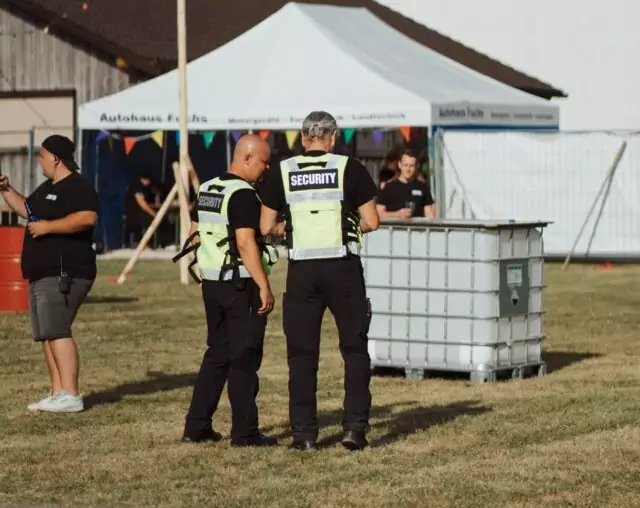Legal services
What is Martyn’s Law?
Here’s what you need to know about Martyn’s Law, also known as the Terrorism (Protection of Premises) Bill
On Monday 19th December 2022, the Government announced details for the Terrorism (Protection of Premises) Bill, known as “Martyn’s Law” in tribute to Martyn Hett who was killed alongside 21 others in the 2017 Manchester Arena terrorist attack. The force behind driving this Bill forward is Figen Murray, mother of Martyn Hett, who has tirelessly campaigned for the implementation of this Bill.
The Bill will seek to improve protective security and organisational preparedness across the UK by requiring, for the first time, that those responsible for certain premises and events consider the terrorist risk and how they would respond to an attack. In addition, certain larger premises and events must also take steps to reduce the vulnerability of premises to terrorist attacks.
What are the Bill’s main provisions?
The Bill will only apply to publicly accessible buildings or land (not private premises or private parts of premises).
A building will often have land associated with it, for example, a pub with a beer garden, or a hotel with outside ground used for dining and events. These would be included as part of the premises.
The premises or land must fall within one of the Schedule 1 uses. Schedule 1 lists a variety of uses, including the retail sale of goods, the sale of food and drink for consumption on the premises, nightclubs, entertainment activities, sports grounds, recreation or leisure, hotels, visitor attractions and so on. Outside the hospitality sector uses include healthcare, places of worship, childcare and educational establishments.
Legal services
How will the Duty work?
Increase preparedness for and protection from a terrorist attack

The Bill is intended to be proportionate and the concept of “reasonable practicability” runs throughout. Therefore, procedures and measures should be tailored to the specific circumstances of the premises or event.
Standard Tier
The Standard Tier will apply to premises that are reasonably expected to have 200 to 799 individuals on the premises at the same time.
Premises are required to put in place simple procedures to reduce the risk of physical harm to individuals who may be present. These would normally include evacuation, invacuation, lock down and communication procedures. The Bill does not require physical alterations or the purchase of equipment at standard duty premises. However, people working at the premises must be made aware of the procedures so that they can be ready to put them into practice. These procedures will require review.
Enhanced Tier
The Enhanced Tier will apply to premises that are reasonably expected to have 800 individuals or more.
Premises will be required to ensure that public protection measures are put in place to reduce the vulnerability of the premises (or qualifying event) to acts of terrorism. These may be implemented through people (eg training), processes (eg a bag search policy ) or physical measures (eg CCTV). Measures might include monitoring of the premises, controlling the movement of people in and out of the premises, physical safety and security measures (eg safety glass or Hostile Vehicle Mitigation) and understanding the sensitivities of information relating to a premises and who should have access to that information, such as floor plans.
Please note: Premises with a public capacity of below 200 fall outside the scope of Martyn’s Law. Premises and events that are reasonably expected to have 800 or more individuals in attendance at the same time at some point during the event will also be subject to enhanced tier requirements, and are called ‘qualifying events’.
Immediate vicinity
Whilst the immediate vicinity of the premises or event is not a factor in deciding whether the premises or event falls within scope (i.e within the 200 – 799, or 800 or above tiers), the immediate vicinity must be included in the relevant procedures and/or measures undertaken to reduce the risk of harm from or vulnerability to terrorist attack. So a large stadium would have to take into account Zone Ex, and a pub might have to take into account the pavement immediately outside.
Who is responsible?
The person responsible in both tiers is the person (an individual or a corporate entity) who has control of the premises in connection with their relevant Schedule 1 use. In other words, the shop owner would be responsible for a shop, or the pub landlord for a pub. Responsibility under the Bill does not lie with the freehold owner if they have no involvement in the running of the premises for its relevant use.
Likewise, the owner of a field where a festival is held once a year would not be the responsible person, rather the festival organiser for the duration of that festival. If another festival is held at the same site later on in the year then that festival organiser would be the responsible person for that later event.
Compliance
The regulator can issue compliance notices, and in the case of enhanced duty premises and events, restriction notices. Restriction notices can limit the numbers at premises or events, the times a premises or event can take place etc. Both types of notice can be appealed to a tribunal.
Penalties
Maximum penalties for standard tier premises are £10,000 for a fixed penalty plus £500 per day daily penalty. For enhanced tier premises or qualifying events these maximums are £18 million or 5% of worldwide turnover, and a £50,000 maximum daily penalty.
Licensing plans
The Bill also contains provisions for the exclusion of sensitive information in licensing plans from licensing authorities’ public registers. These provisions would apply to licensing plans from the date the Bill came into effect but plans already on licensing registers can be subject to applications for their removal or amendment to ensure that no sensitive information that could be of use to terrorists is publicly available.
Legal services
What premises are in the scope?
Assess whether your premises is in the scope

Premises or land which are not used for a Schedule 1 use, or whose reasonable expectation of individuals present could never be more than 199 fall outside the scope of the Bill. There are also certain excluded premises, for example the Houses of Parliament.
How to assess whether your premises is in the scope?
The test is a reasonable expectation of 200 or more individuals at the premises at the same time. Any reasonable method of assessing this number can be used, so for example:
- Safe occupancy for fire safety purposes
- Historic attendance data
- Fixed seating and/or standing numbers
- Tickets and pre-registration limits
- Restrictions imposed by a premises licence or other authorisation
- Other means of assessing, for example using records of transactions.
Legal services
Frequently asked questions
Breakdown on how Martyn’s Law will be enforced, where it will apply and when it will become law
How will Martyn’s Law be enforced?
An inspection regime will be established to seek to educate, advise and ensure compliance with the Duty. Where necessary, the Inspectorate will use a range of sanctions to ensure that breaches are effectively dealt with.
Will Martyn’s Law apply to all of the UK?
Yes, the legislation will apply across England, Wales, Scotland and Northern Ireland as national security is a reserved matter for the UK Government.
Who is the regulator?
The regulator is the Security Industry Authority (SIA). Both standard and enhanced tier premises must notify the SIA.
When will the Protect Duty become law?
The Bill is currently going through various stages of the Houses of Parliament. It only becomes an Act when it receives Royal Assent, and even then it is likely not to have effect for 18 to 24 months, to give operators time to prepare.
Where can I find further help and advice for my business on Martyn’s Law?
Dedicated guidance and support will be provided and a new online platform has been developed by the National Counter Terrorism Security Office, Home Office and Pool Reinsurance to support everyone seeking to enhance their protective security. Protect UK will serve as the ‘go-to’ resource for free, 24/7 access to the latest information on protective security.
Legal services
Stay updated
We will continue to keep you updated with further details as and when they become available.


